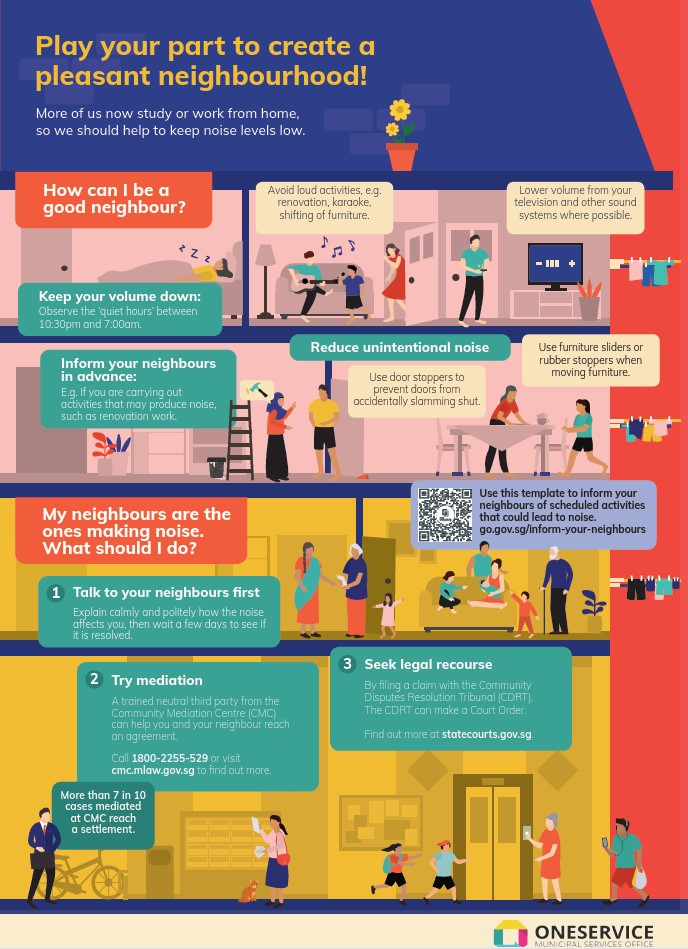Remember the incidents last year involving the closure of recreational spaces?
One of the cases involved the sealing off of a void deck in Woodlands after numerous noise complaints.
This void deck was a popular spot for young primary school children to play football—a pastime many of us fondly remember from our own childhoods where we played football or “catching” with friends.
However, opportunities for play and social gatherings at void decks have dwindled due to heightened restrictions. For example, numerous signs now prohibit football playing in these spaces.

Despite these prohibitions, some children continue to play football in void decks, leading to noise complaints.
Consequently, the Woodlands void deck was temporarily closed to prevent children from playing there and to mitigate the noise concerns.

Similarly, a street football court in Bedok North faced temporary closure due to noise complaints and misuse, including instances where court users directed vulgarities at residents and urinated in public spaces.
You can watch our video below for a more detailed explanation of this cases:

It turns out that it’s not just these two places: a staggering total of 27 cases of public spaces closures or restrictions due to noise complaints have been reported within the last three years.
Restriction of Places are Done as a Last Resort
National Development Minister Desmond Lee elaborated in a parliamentary reply on 5 February that the restriction or closure of public spaces are done as a last resort.
Initially when complaints arise, advisories are even put up to encourage appropriate use of facilities, and grassroot leaders may advise individuals exhibiting disruptive behaviours.
If problematic behaviour persists, authorities have no option but to impose closures or restrictions on these public spaces. These measures include adjusting facility lighting times or locking facilities at night.
Town councils can also get support from the Singapore Police Force and other government bodies such as National Environmental Agency (NEA) if the issue continues.
Mandatory Mediation Might be Implemented for Some Dispute Cases
Law and Home Affairs Minister K. Shanmugam mentioned in another parliamentary response that the government is contemplating mandatory mediation for certain dispute cases.
This way, front-line officers could mandate mediation for long drawn or escalated disputes between neighbours.
Furthermore, the government is examining the possibility of mandating re-mediation for disputes that reoccur after a previous resolution.
Mr Shanmugam acknowledged that some members of the public have concerns such as the risk of potential retaliation and abuse by those who insist on mediation without genuine intent to resolve the dispute.
He added that the government is studying ways to address these concerns.
Ongoing Review of Residential Noise Thresholds
MP Pritam Singh raised a question about whether the Ministry of National Development will implement the Community Advisory panel on Neighbourhood Noise’s recommendation on a quantitative noise threshold to help assess egregious cases of neighbourhood noise.
Currently, such thresholds are in place for construction sites and factories near residential areas but not for neighbourhood noise.
Minister Desmond Lee replied that a review of residential noise thresholds is underway, with completion expected by 2024.
He added that the Municipal Services Office is working with research from Nanyang Technological University to research whether noise thresholds used elsewhere could be effective in resolving local disputes.
Ultimately, the most effective way to manage neighborhood noise is through the considerate use of common spaces.

Residents are urged to remain considerate, especially during quiet hours from 10:30 pm to 7 am, maintain low volume levels at home, and avoid noisy recreational activities during these times, ensuring a peaceful environment for all.
Basically, let’s just say that in recent years, we’re now getting noisier about noise.
Would you be jailed for being half-naked in public? Well, the answer will shock you. Seriously. Watch this to the end and you'll understand:




